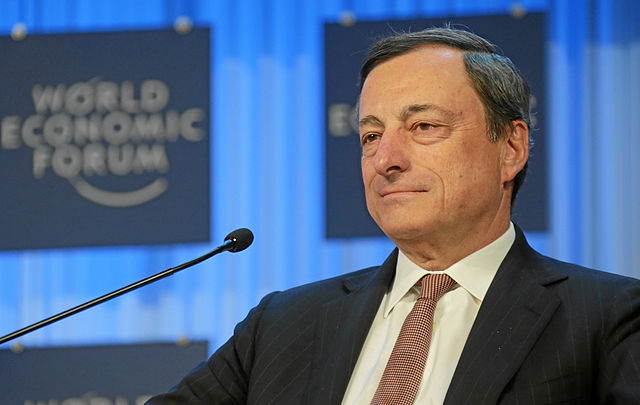ECB’s new stimulus package
March 10, 2019 | Expert Insights

The European Central Bank said it will offer more cheap loans to banks and keep interest rates at a record low for a longer period as a weakening economy derails its plan to withdraw stimulus.
Background
The European Central Bank (ECB) is the central bank for the euro and administers a monetary policy of the Eurozone, which consists of 19 EU member states and is one of the largest currency areas in the world. It is one of the world's most important central banks and is one of the seven institutions of the European Union (EU) listed in the Treaty on European Union (TEU). The capital stock of the bank is owned by the central banks of all 28 EU member states.
The primary objective of the ECB, mandated in Article 2 of the Statute of the ECB, is to maintain price stability within the Eurozone. Its basic tasks, set out in Article 3 of the Statute, are to set and implement the monetary policy for the Eurozone, to conduct foreign exchange operations and to take care of the foreign reserves of the European System of Central Banks
Although the sovereign debt crisis was almost solved by 2014, the ECB started to face a repeated decline in the Eurozone inflation rate, indicated that the economy was going towards a deflation. Responding to this threat, the ECB announced on 4 September 2014 the launch of two bond buying purchases programmes: the Covered Bond Purchasing Programme (CBPP3) and Asset-Backed Securities Programme (ABSPP).
Analysis
ECB President Mario Draghi and fellow policymakers will offer banks the first round of long-term loans since 2016, starting in September. Officials left their key interest rates unchanged and said they’ll stay at current levels through the end of the year, several months later than previously anticipated.
The decision came just three months after the ECB halted its crisis-era bond-buying program and signalled it may raise borrowing costs later this year. The change of gears reflects slowdowns in large economies such as Germany and Italy amid the global rise of protectionism and populism.
Draghi is set to reinforce the sense of concern when he unveils new forecasts at Frankfurt. The latest projections show extensive downgrades for inflation and economic expansion in 2019 with a pickup anticipated toward the end of the year.
A recession in Italy, a near-recession in Germany and pressure from global trade tensions have Brexit have left the euro-area economy in a weakened condition. While some surveys have shown signs of stabilization recently, sharp declines in key indicators since last year have raised the alarm about the health of the region.
The ECB is, therefore, reviving its Targeted Longer-Term Refinancing Operations with the intention of encouraging banks to provide credit to businesses and customers across the euro-region. The loans will have a maturity of two years, and the interest rate will be indexed to the main refinancing rate over the life of each operation.
Similar to previous offers, the program will have built-in incentives to assist credit conditions. Financial institutions took up more than 700 billion euros ($788 billion) in the second TLTRO, launched in 2016. The tool is now in its third incarnation, on terms which seem less favourable than before.
Since the ECB said in January 2019 that risks to the outlook moved to the downside, a number of policymakers have voiced concern over the economy and said they were discussing a possible response.
However, there was speculation that the ECB would hold out and not make an announcement today. Some economic numbers have shown signs of stabilizing recently after sharp drops in previous months. Waiting would allow more time for one-time factors that hit 2018 growth to fade, while there’s also been some progress in U.S.-China talks to prevent a worsening of their trade dispute.
Assessment
Our assessment is that with Japan at the threshold of a recession, similar economic trends in Germany, Italy and slowdown in a few Asian economies, the impact of the trade war is becoming clearer. We believe that the stimulus package is a purely precautionary measure from the ECB as it would like to prepare for any eventuality in European markets, irrespective of the outcome in the talks between China and the US.
Image Courtesy: World Economic Forum (https://commons.wikimedia.org/wiki/File:Mario_Draghi_World_Economic_Forum_2013.jpg), „Mario Draghi World Economic Forum 2013“, https://creativecommons.org/licenses/by-sa/2.0/legalcode








Comments